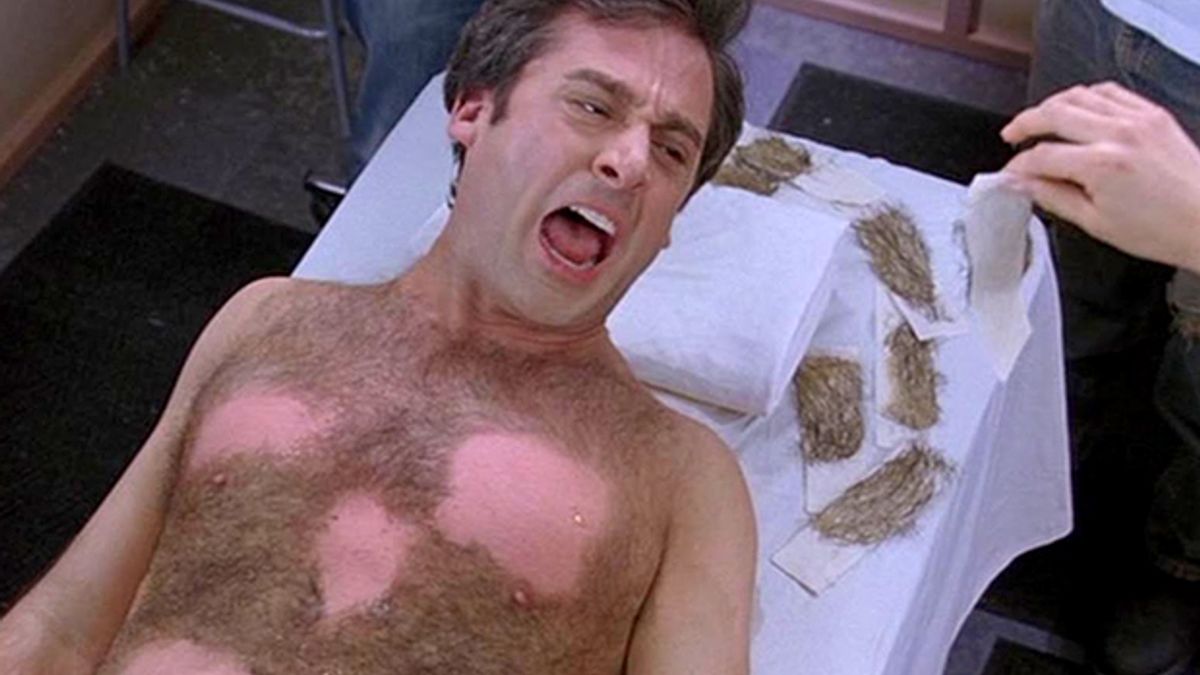We figure out whether we need vegetation under the armpits and on the pubis and whether it is worth removing it.
Advertising for shavers and epilators strongly suggests that body hair is unhygienic and ugly. Society supports this belief, as well. Shave certain places, everything, or nothing at all – everyone’s choice.
On open areas of the body – legs, arms, chest – hygiene does not count, and only aesthetic views can be the reason. But the hair under the armpits and on the pubis is another matter, here first of all cleanliness and absence of smell come to mind.
Also read: How to Stop Hating Your Body.
Before examining the real reasons that make people shave, it would be nice to understand why we have any armpit and pubic hair and lose something important by shaving it.
Why do we need pubic and armpit hair?
Two theories are explaining why we have quite dense vegetation in these areas.
- To reduce friction. In the case of the armpits – when walking, running, working with your hands, and on the pubis – during sex. However, the absence of hair does not appear to contribute to the appearance of scuffs in these areas.
- To attract the opposite sex. Apocrine glands are located in the armpits and on the pubis, whose task is to secrete secretions from proteins, fats, and fatty acids. This wealth is fed by bacteria, which provide a specific flavor. Scientists speculate that the secret saturates the hair, which enhances the smell and, in theory, attracts partners. However, the rudimentary vomeronasal organ (how animals determine pheromones) and dysfunction of the pubis’ apocrine glands suggest that this feature is a relic and is unnecessary for finding a sexual partner.
Thus, there is no urgent need for hair in these areas of the body.
Why people started shaving their body hair
Shaving your legs, armpits, and pubis is not such a modern invention—female Pubic Hair Removal. Shaving was practiced in Egypt and Greece’s ancient cultures, in ancient Rome, and even during the middle ages to get rid of pubic lice.
In the 20th century, marketing was blamed for the spread of sleek body fashion. In 1915, the first Gillette ad came out with the message that it was feminine and hygienic. And in 1924, the first bikini swimwear appeared, and women began to shave their hair below the abdomen. The fashion for shaved skin not only on the face reached men a little later male body depilation.
The production of shaving and hair removal products, as well as the development of various methods of hair removal, is a huge industry in which a lot of money is spinning.
The hairless body is promoted not only in advertisements but also in fashion magazines, films, and TV shows. They also talk about the proliferation in which pubic hair is scarce. Young people absorb this experience and begin to perceive the lack of hair as one criterion for sexuality.

What other reasons are there
Studies in the UK, New Zealand, Australia, and the US show mapping axillary microbiota responsible for body odors using a culture-independent approach that pubic hair is shaved by 65–89% of women and 65–82% of men.
Most often, people of both sexes shave before sex, especially before oral sex.
Also, 61% of men and 59% of women do it for hygiene, while 44 and 46% perceive it as part of their routine personal care. Interestingly, some primitive communities with no access to fashion magazines or porn are getting rid of groin hair for the same reasons.
The study found 26 such pre-industrial societies. In 22 of them, only women shave the pubis. In 11 men do it too. Scientists have found information about the causes of tradition in some communities; in two of them, it was done for attractiveness, in seven – for hygiene.
Is it hygienic
Probably the most common reason for underarm shaving is to get rid of an unpleasant odor. In men, hair removal in these areas does help. A clinical study of different hair removal comparative procedures and their impact on axillary odor reduction in men immediately weaken the aroma of perspiration instead of simple washing with soap.
Also read: How to Keep Your Feet Healthier.
For women, this is a little less relevant since they have less sweat. Mapping axillary microbiota responsible for body odors using a culture-independent approach and its smell is weak. But as the hair grows the area where bacteria live, women still benefit from shaving.
With regard to the pubis, hair removal helps to copeDid the “Brazilian” kill the pubic louse? with pubic lice, otherwise the benefits are controversial.
The odor problem is not as acute here as in the case of armpits. The fact is that the apocrine glands in intimate places do not produce sweat. Therefore, there is never a smell from the groin area, like from the armpits, and there is no need to fight it. To maintain hygiene, you can wash regularly, and that will be enough.
To reduce the risk of injury and infection, you can skip the razor and trim your hair with a trimmer or remove it using other methods.
It can be concluded that hair removal in terms of hygiene only makes sense in the armpit area. On the pubis, legs, arms, it performs only a purely aesthetic function in other places. In any case, to do it or not is up to you.
Adapted and translated by Wiki Avenue Staff
Sources: Life hacker






